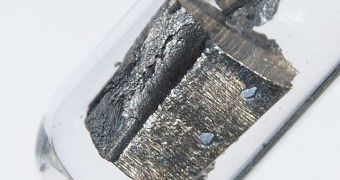Most of the advancements in the Information Age were ushered forth by the fact that the Silicon Valley learned to use the relatively common chemical silicon in processors, chips and other electronic applications. This has enabled a fast history of progress over the last few decades, but now innovation is becoming increasingly difficult, as it no longer relies on abundant materials. For example, producing new types of wind turbines, TV displays, and hybrid cars requires elements that are fairly hard to come by, called rare earth elements (REE). When looking at green technologies and high-tech consumer products, it immediately becomes obvious that they cannot develop without these chemicals.
The problem is that China is the main exporter of REE. This would be nothing to worry about in itself, but the country announced not too long ago that its rising demand of the stuff could soon see it canceling most of its exports. This means that the nations currently relying on the Asian one for their supplies could be forced to look for other sources of rare earth elements, and finding new suppliers could prove to be extremely difficult, LiveScience reports.
“Countries and companies that have or plan to develop industries that need rare earth minerals to make products are concerned about China's growing consumption, which they fear will eliminate China's exports of rare earths,” US Geological Survey (USGS) International Minerals Section chief W. David Menzie explains. He adds for TechNewsDaily that most companies seeking to use these chemicals in the long run should relocate their production facilities in China. However, many corporations fear that doing so would mean that their intellectual property rights would not be respected.
The USGS expert says that REE exist in countries such as the United States and Canada as well, but that the governments in these places do not have the capacity to support the industries required to process the raw elements from start to finish. Independent consultant Jack Lifton believes that the US government should start subsidizing such an industry, if it expects to rip the benefits of the innovations possible through the chemicals in the future. Some of the rarest REE include europium, lanthanum, and neodymium.
“If you are a developing country trying to build a manufacturing industry, the traditional ferrous (iron) and base metals can be very important as can construction materials such as cement and crushed stone. Countries such as China have been developing their manufacturing industries and require large amounts of iron ore, nickel, zinc and other alloying metals, as well as copper and fuels,” Menzie says.

 14 DAY TRIAL //
14 DAY TRIAL //